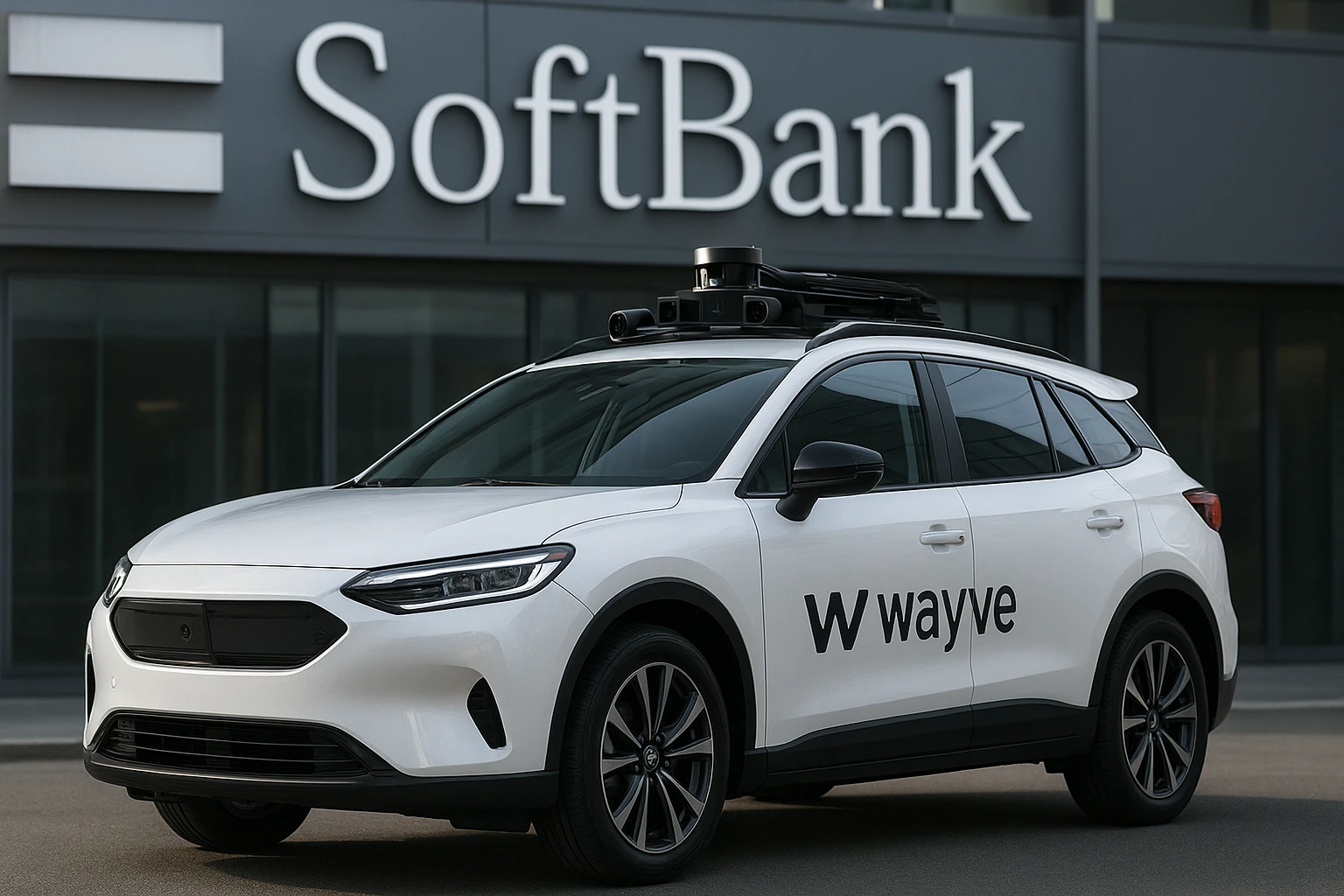LONDON — British autonomous driving start up Wayve is reportedly in talks with Microsoft and SoftBank to raise as much as $2 billion in fresh funding, a deal that could value the London based company at about $8 billion, according to a report by the Financial Times on Monday.
If confirmed, the investment would mark one of the largest private funding rounds ever for a European artificial intelligence firm and signal growing global confidence in the region’s self driving technology industry.
Founded in 2017 by a team of researchers from the University of Cambridge, Wayve develops AI powered software that enables vehicles to drive autonomously using camera based perception systems.
Its approach, known as “embodied AI,” teaches vehicles to learn from real world visual data rather than relying on complex digital maps or pre coded rules.
The company already operates test fleets in the United Kingdom and the United States and has recently expanded into Germany and Japan to accelerate research and commercial trials.
Wayve has drawn attention from major tech and mobility players. Last year, it secured more than $1 billion in funding led by SoftBank, with participation from Nvidia and Microsoft.
Ride hailing giant Uber also made an undisclosed investment in 2024, seeking to explore future partnerships for autonomous ride sharing.
According to the Financial Times report, the latest round under discussion could inject up to $2 billion into Wayve, building on Microsoft’s previous involvement as both investor and cloud computing partner.
A person familiar with the talks told the paper that discussions are “advanced but not finalized,” and could take several weeks to conclude.
Neither Wayve, Microsoft, nor SoftBank immediately responded to Reuters’ requests for comment.
SoftBank’s Vision Fund has been an early and consistent backer of mobility and AI technologies, while Microsoft has intensified its push into artificial intelligence infrastructure through partnerships with OpenAI and other emerging players.
“Microsoft’s participation in Wayve fits perfectly within its AI ecosystem strategy,” said Elena Wright, a London based technology analyst at Mobility Intelligence Group.
“By supporting companies that integrate AI into physical systems like cars, Microsoft gains an edge in both data access and computing demand.”
Industry analysts say the potential $8 billion valuation would place Wayve among Europe’s most valuable AI start ups, reinforcing the UK’s ambition to be a global leader in autonomous mobility.
“Wayve represents the next wave of autonomous driving innovation software first and mapless,” said Dr. Arjun Mehta, professor of robotics at Imperial College London.
“If Microsoft and SoftBank double down, it’s a signal that Europe can produce AI champions capable of standing against US and Chinese rivals.”
Wayve’s model contrasts with US companies such as Waymo and Cruise, which rely heavily on high definition maps and rule based systems.
By using neural networks that interpret visual inputs directly, Wayve aims for faster adaptation across different cities and driving conditions.
Still, analysts caution that the path to commercialization remains uncertain. “The technology is incredibly promising, but proving safety, scalability, and regulatory compliance at a global level is still a tall order,” said Clara Henderson, senior mobility researcher at GlobalData.
If completed, the new funding would push Wayve’s total capital raised to more than $3 billion, an exceptional figure for a UK based deep tech company.
Global investors have poured billions into AI start ups over the past year, racing to secure positions in a field that underpins both autonomous driving and generative AI applications.
Nvidia alone has committed over $500 million to Wayve under a nonbinding letter of intent signed in September, according to Reuters.
The interest reflects a broader shift from hardware heavy autonomous vehicle development toward AI centric, software defined mobility an area where Wayve has gained a technological edge.
In London’s growing AI cluster, entrepreneurs and engineers view Wayve as a bellwether for Europe’s innovation potential.
“Seeing a homegrown company like Wayve attract this level of international investment is a morale boost for the entire sector,” said James Patel, founder of a London-based mobility start up. “It shows that world class AI can come out of the UK, not just Silicon Valley.”
In Japan, where Wayve recently opened a testing center in Yokohama, the response has been equally upbeat. Naomi Suzuki, a Tokyo automotive consultant, said, “Japanese automakers are watching closely.
Wayve’s expansion here could help bridge Western AI expertise with Japan’s manufacturing strength.” However, safety experts emphasize the need for rigorous oversight.
Autonomous driving technologies are advancing fast, but we cannot compromise on public safety, said Dr. Kenji Tanaka, policy researcher at Japan’s National Institute of Transport. “Partnerships like these must come with strong regulatory collaboration.”
Should the Microsoft and SoftBank investment materialize, Wayve is expected to scale its embodied AI platform globally and deepen collaborations with automakers such as Nissan, General Motors, and Uber.
The UK government, which recently advanced its Automated Vehicles Bill, has highlighted companies like Wayve as examples of innovation that could define the country’s post Brexit tech economy.
Analysts predict that the next 12 months will be pivotal as Wayve moves from experimental testing to early commercial deployment. “An $8 billion valuation would not just be about capital,” said Henderson.
“It would be about credibility showing that a European AI firm can lead in an industry long dominated by American and Chinese giants.”
Wayve’s ongoing talks with Microsoft and SoftBank could reshape the landscape of autonomous driving and solidify the UK’s role in the global AI race.
While the negotiations remain confidential, the potential $2 billion investment underlines the rising strategic importance of embodied AI and signals that Europe’s self driving ambitions are far from idle.
